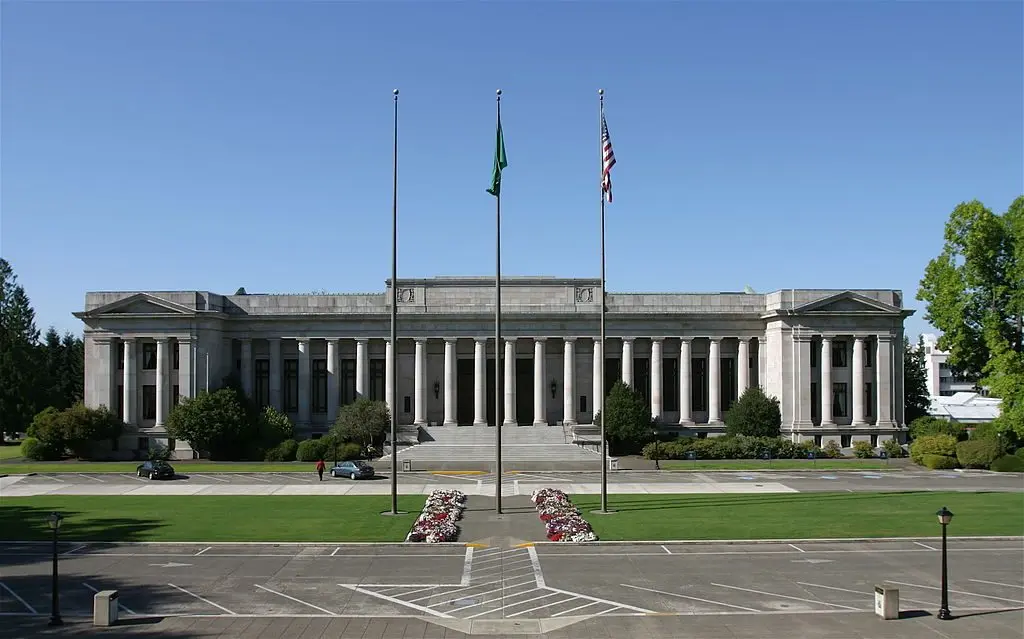OLYMPIA, WA – In an 8-1 decision, the Washington Supreme Court on Thursday ruled that the Office of Financial Management was justified in withholding certain contract negotiation documents related to collective bargaining agreements.
The case involves a lawsuit filed in December 2022 by the Citizen Action Defense Fund, an Olympia-based government watchdog organization, regarding negotiations between the Washington Federation of State Employees and the Governor’s Office “for failing to provide public records in connection with the Governor’s ‘secret’ negotiations with public sector employee unions last year that led to biennial agreements with $997 million in increased salary and benefits for state employees.”
Thurston County Superior Court Judge Mary Sue Wilson ruled in March 2023 that offers and counteroffers for state employee pay raises are disclosable public records once a deal is reached with the governor and posted online, as opposed to when the budget is signed.
Wilson awarded attorney’s fees and costs in addition to a $6-a-day penalty.
OFM filed an appeal at the Division II Court of Appeals, and on July 16, 2024, the appellate court overturned the Thurston County Superior Court’s decision.
The following month, CADF appealed the decision to the state Supreme Court.
According to Thursday’s ruling, the court found that the documents were not subject to public disclosure under the Public Records Act because the deliberative process exemption still applied, even after the CBAs were signed.
The court reasoned that the documents were part of a deliberative process, even after the CBAs were signed, because they were not finalized until approved by the Legislature and signed by the governor.
“We find the public employee collective bargaining process is complete when the final step in the statutorily required implementation process has been completed,” Associate Chief Justice Charles Johnson wrote on behalf of the majority. “Because the final step in the implementation process set out in RCW 41.80.010(3) is the approval of funding for the CBA, we hold that the collective bargaining process is not complete until the CBA has been funded. Thus, the … deliberative process exemption, to the extent that it covers documents related to collective bargaining that takes place under chapter 41.80 RCW, ceases to protect those documents only when the relevant CBA has been funded by the legislature. Accordingly, we affirm the Court of Appeals.”
Justice Salvador Mungia was the lone dissenter.
“The requested documents at issue here are the original offers made by the Union and OFM. The deliberative process ended when those two parties submitted the proposed CBA to OFM for financial feasibility. At that point, that decision was implemented,” he wrote. “I would reverse the Court of Appeals and, accordingly, respectfully dissent.”
CADF Director of Communications and Operations Paige Jaramillo was critical of the state Supreme Court’s ruling.
“The Governor’s Office is conducting billion-dollar negotiations behind closed doors, and the Court just allowed them to keep those details private despite the agreement being finalized and made available to the public,” she emailed The Center Square. “The PRA exists for a reason – the public has a right to access this information and a right to know how their tax dollars are being spent. To say we’re disappointed in the Court’s ruling would be an understatement.”
